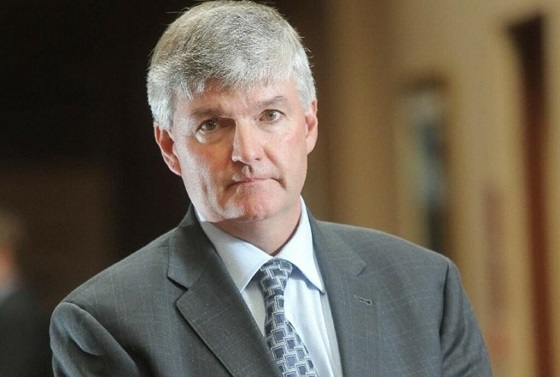Mike Rose is Chair, President and CEO of Tourmaline Oil Corp.
By Mike Rose of Tourmaline Oil Corp.
There has never been a more urgent time to aggressively develop Canada’s massive resource wealth
There has never been a more urgent time to aggressively develop Canada’s massive resource wealth. An increasingly competitive world is organizing into new alliances that are threatening our traditional Western democracies.
Weaker or underperforming countries may be left behind economically and, in some cases, their sovereignty may be compromised. We cannot let either scenario happen to Canada.
Looking inward, our country has posted among the weakest economic growth of all G20 nations over the past decade — we are at real risk of delivering a materially diminished standard of living to our children and subsequent future generations.
Canada is blessed with one of the largest and most diverse natural resource endowments in the world. It’s not just oil and gas; it’s uranium, precious metals, rare earth elements, enormous renewable forests, a vast fertile agricultural land base and, of course, the single-largest freshwater reserve on the planet.
This is nothing new; Canada has been regarded as a resource-extraction economy for a long time, but over the past two decades we’ve been slowing down and finding reasons to not advance new projects. While looking ahead to an exciting new future economy is enticing, the majority of our easily accessible resource wealth remains largely untapped. Our Canadian resource sectors are the most capital-efficient, technologically advanced and environmentally responsible in the world. We’ve got the winning combination.
Canada has among the largest, lowest-cost natural gas reserves in the world — we’re already the fourth-largest producer. With consistent regulatory support, we can rapidly evolve into a leader in the growing global LNG business.
This country produces among the lowest-emission natural gas in the world and technology adaptation is widening the gap. A 10 bcf/day Canadian LNG industry targeted to displace coal-fired electrical generation in Asia would offset the vast majority of emissions from the entire domestic oil and gas industry. Contemplating a cap on the Canadian natural gas industry is actually damaging to the global environment, as growing demand will be met by jurisdictions with higher associated emissions.
As developed economies look at electrification to accelerate emissions reduction, nuclear power is becoming increasingly attractive. Canada is already one of the largest uranium producers in the world and has long possessed one of the most efficient and safest reactor designs. This is an advantage we created for ourselves several decades ago; it’s time to harvest this opportunity.
The rare earth elements required for a growing solar industry and battery requirements associated with electrification are abundant in certain regions in Canada — for example, a large new mining opportunity is emerging in Ontario. We should make that happen. One of the great outcomes of accelerating our multi-sector resource opportunity is that the economic benefits will be enjoyed across the country; all Canadians will share in it.
The Canadian agricultural industry has been long regarded as a world leader in efficiency, yield and technical innovation. Global food security and affordability are rapidly emerging issues, and Canada has a role to play here, as well. Not only could we make it more attractive for Canadian producers to grow output and explore novel new transportation corridors to feed more of the world, we have a large, well-established, globally competitive fertilizer industry.
There are many more future resource wealth opportunities we could be capitalizing on. The list is as long as the imagination of our well-educated and entrepreneurial resource sector workforce.
Enormous amounts of capital are required for these projects, and that global capital is most certainly available. These pools of capital will flow into Canada if we demonstrate a willingness to consistently support the Canadian resource sector at provincial and federal government levels.
Accelerating domestic multi-sector resource development provides solutions to many of the problems currently facing Canada. We’ll be playing to strengths that we have established and evolved over many decades. We are the most efficient and technologically advanced in the full spectrum of resource development. Adoption and innovative adaptation of the continuous march of technology advancements will only make us better.
To paraphrase: We can take advantage of what’s between our ears to do an even better job of developing what’s beneath our feet.
Mike Rose is Chair, President and CEO of Tourmaline Oil Corp.
In an ongoing monthly series presented by the Calgary Herald and Financial Post, Canadian business leaders share their thoughts on the country’s economic challenges and opportunities.
Related























